The Squires of Science, by Dennis O’Neil
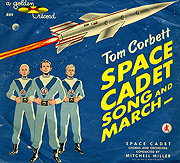 We were the Squires of Science, my friend Mike and I were. He went to public school and I was a sixth- or seventh grader at St. Louise de Marillac, but that didn’t keep us from palling around together, watching Tom Corbett, Space Cadet on his family’s television set and doing chemistry set experiments in his basement. Actually, I don’t remember doing many experiments – we squires weren’t really much into real science – but Mike, who was good with tools, made us a plaque and, well…we believed in science. Maybe not as much as I believed in the Father, Son, and Holy Ghost, but still a lot.
We were the Squires of Science, my friend Mike and I were. He went to public school and I was a sixth- or seventh grader at St. Louise de Marillac, but that didn’t keep us from palling around together, watching Tom Corbett, Space Cadet on his family’s television set and doing chemistry set experiments in his basement. Actually, I don’t remember doing many experiments – we squires weren’t really much into real science – but Mike, who was good with tools, made us a plaque and, well…we believed in science. Maybe not as much as I believed in the Father, Son, and Holy Ghost, but still a lot.
I was also reading a lot of science fiction, thanks to the public library, and I guess Mike was, too.
Adolescence disintegrated the Squires of Science. I was off to a Catholic military school – and yes, you may snicker – and Mike went…I don’t know – probably to Beaumont High, which we Catholic kids thought was kind of wicked, in some ill-defined way.
About then, I began to realize, dimly, that science involved mathematics. I had never been really good at arithmetic, which caused me a lot of grief at old St. Louise, and I seemed to be getting worse as I grew older. Then I flunked freshman algebra. Had to go to summer school. It wasn’t exactly a disgrace, but it wasn’t exactly not a disgrace, either.



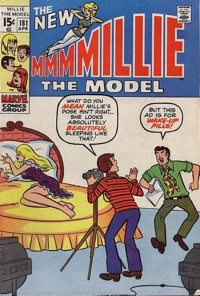 So the third New York Comic Con is one for the annals and I have stopped twitching.
So the third New York Comic Con is one for the annals and I have stopped twitching.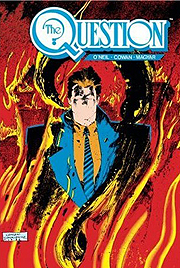 Well,
Well, 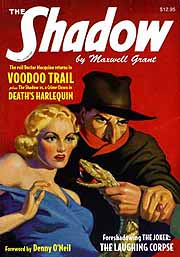
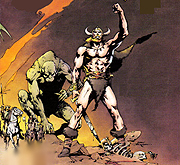 In days of yore, when cowboys and dinosaurs roamed the land and I was an undergraduate in a Jesuit-run university, not knowing exactly what one was supposed to do in a university, much less what the heck I, a butcher’s kid from north St. Louis, was doing at a university, I had what Friedrich Nietzsche might have called a “slave morality.” That is, I felt powerless and I resented and mistrusted every authority figure on the horizon, even the ones who were trying to help me.
In days of yore, when cowboys and dinosaurs roamed the land and I was an undergraduate in a Jesuit-run university, not knowing exactly what one was supposed to do in a university, much less what the heck I, a butcher’s kid from north St. Louis, was doing at a university, I had what Friedrich Nietzsche might have called a “slave morality.” That is, I felt powerless and I resented and mistrusted every authority figure on the horizon, even the ones who were trying to help me. As I sit down to write this, I’m less than five hours from midnight on March 23rd and so it might be appropriate to wish you a Happy Easter, or Happy Pasha if you’re an Oriental Christian, or Happy Purim. Or maybe I should give a shout-out to Aphrodite, Ashtoreth, Astarté, Demeter, Hathor, Ishtar, Kali, Ostara – all deities who were celebrated around the spring equinox and, as far as my extremely limited and unreliable knowledge goes, all of whom were connected to fertility, which figures: Spring equinox = end of winter = new life = let’s have a party.
As I sit down to write this, I’m less than five hours from midnight on March 23rd and so it might be appropriate to wish you a Happy Easter, or Happy Pasha if you’re an Oriental Christian, or Happy Purim. Or maybe I should give a shout-out to Aphrodite, Ashtoreth, Astarté, Demeter, Hathor, Ishtar, Kali, Ostara – all deities who were celebrated around the spring equinox and, as far as my extremely limited and unreliable knowledge goes, all of whom were connected to fertility, which figures: Spring equinox = end of winter = new life = let’s have a party.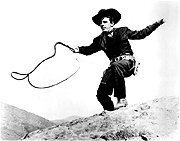
 Don’t bother putting on airs, Messrs. Man (Super and Bat); you’re nothing special, not any more. These days, you’re just two more members of a rather large club that includes cowboys, cops, private eyes, combat soldiers and guys who fly space ships to other planets and solar systems and galaxies. Serial killers who slice and dice sexy teenagers are in the club, too. And critters that are normally harmless but mutate into gigantic sociopaths.
Don’t bother putting on airs, Messrs. Man (Super and Bat); you’re nothing special, not any more. These days, you’re just two more members of a rather large club that includes cowboys, cops, private eyes, combat soldiers and guys who fly space ships to other planets and solar systems and galaxies. Serial killers who slice and dice sexy teenagers are in the club, too. And critters that are normally harmless but mutate into gigantic sociopaths.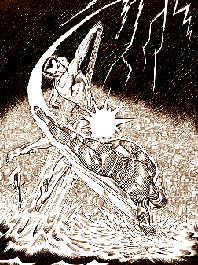 In days of yore – my yore anyway – I briefly wondered if my particular literary backwater, the writing of comic books, would be properly remembered. It seemed to me that young snots such as myself were getting attention – interviews and the like – and the guys who were around at the beginning, the guys who virtually created the form, were pretty much ignored, although many of them were still alive and frisky.
In days of yore – my yore anyway – I briefly wondered if my particular literary backwater, the writing of comic books, would be properly remembered. It seemed to me that young snots such as myself were getting attention – interviews and the like – and the guys who were around at the beginning, the guys who virtually created the form, were pretty much ignored, although many of them were still alive and frisky.








